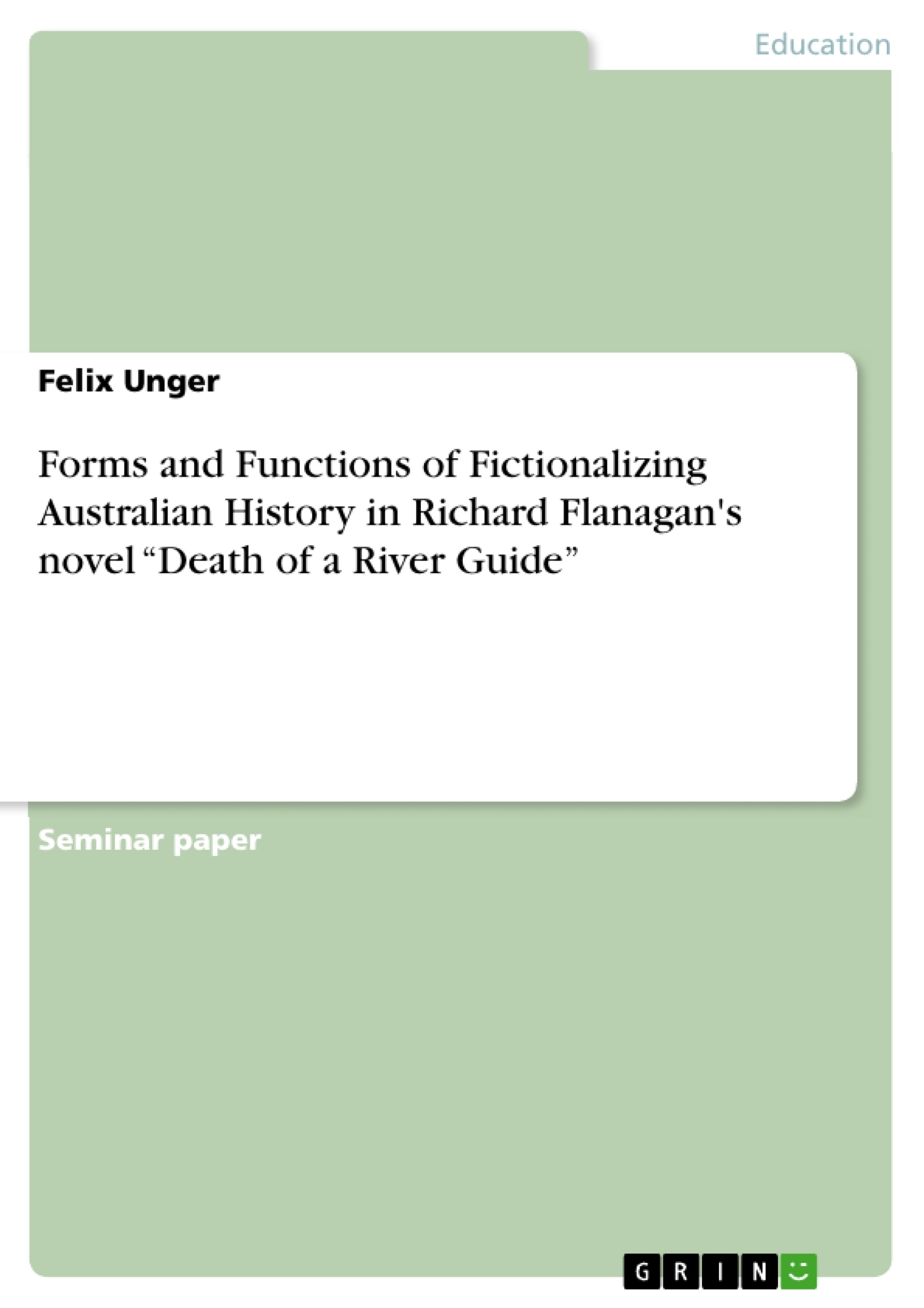In this term paper, the plot of “Death of a River Guide” will be analysed, preceded by a brief summary of the (colonial) history of Tasmania, where the novel is set.
The analysis of “Death of a River Guide” will be done with respect to its links with Tasmanian history. Reading between the lines of Aljaz's visions namely reveals not only insights into his and his family's past, but also into Tasmania's history, which was marked by a quite difficult encounter between Aboriginals and settlers, especially the many convicts that were sent onto the island. This fictionalization of the country's past is depicted by Flanagan from various viewpoints. Finally, a conclusion will be drawn.
Inhaltsverzeichnis (Table of Contents)
- Introduction
- Tasmania's colonial past – the history of a British genocide
- Tasmania's heritage in “Death of a River Guide”
- Discussion and conclusion
- Works Cited
Zielsetzung und Themenschwerpunkte (Objectives and Key Themes)
This term paper examines Richard Flanagan's debut novel "Death of a River Guide," focusing on its narrative structure, themes of history and identity, and its connection to the colonial past of Tasmania. Through analyzing the protagonist's visions, the paper reveals how Flanagan fictionalizes Tasmania's history and explores the complex relationship between the indigenous population and European settlers.
- The novel's exploration of Tasmania's colonial history and its impact on the lives of its characters
- The use of visions to reveal the protagonist's past and the past of his ancestors
- The themes of identity, belonging, and the legacy of colonization
- The portrayal of the “Black War” and the attempted genocide of the indigenous Tasmanians
- The influence of convict history on the development of Tasmanian society
Zusammenfassung der Kapitel (Chapter Summaries)
The introduction provides an overview of "Death of a River Guide" and its narrative structure, focusing on the protagonist's visions as a means of exploring Tasmanian history and his own family lineage. The second chapter delves into the colonial past of Tasmania, highlighting the British policy of genocide against the indigenous population and the systematic destruction of their culture. The third chapter explores how this historical context is woven into Flanagan's novel, showing how the protagonist's visions reflect the brutalities of the colonial era and its lingering impact on the island's identity.
Schlüsselwörter (Keywords)
The key themes and concepts in this paper revolve around "Death of a River Guide," Tasmanian history, colonialism, genocide, indigenous identity, and the impact of convict history. It explores the relationship between historical events and individual lives, using Flanagan's novel to examine the complex and often painful legacy of British colonization in Tasmania.
Frequently Asked Questions
What is Richard Flanagan's "Death of a River Guide" about?
The novel follows Aljaz Cosini, a river guide who experiences visions of his and Tasmania's past while drowning, blending personal and colonial history.
How is Tasmania's colonial history depicted in the novel?
Flanagan explores the "Black War," the genocide of indigenous Tasmanians, and the brutal convict system that shaped the island's identity.
What is the significance of the protagonist's visions?
The visions act as a narrative device to fictionalize history, linking the character's family lineage to the broader, often violent events of Tasmanian history.
What themes are central to Flanagan's work?
Central themes include identity, belonging, the legacy of colonization, and the complex relationship between settlers and Aboriginal people.
Why is the setting of Tasmania important?
Tasmania's unique history as a penal colony and the site of systemic genocide provides a powerful backdrop for exploring historical trauma and national identity.
- Quote paper
- Felix Unger (Author), 2016, Forms and Functions of Fictionalizing Australian History in Richard Flanagan's novel “Death of a River Guide”, Munich, GRIN Verlag, https://www.grin.com/document/349139



